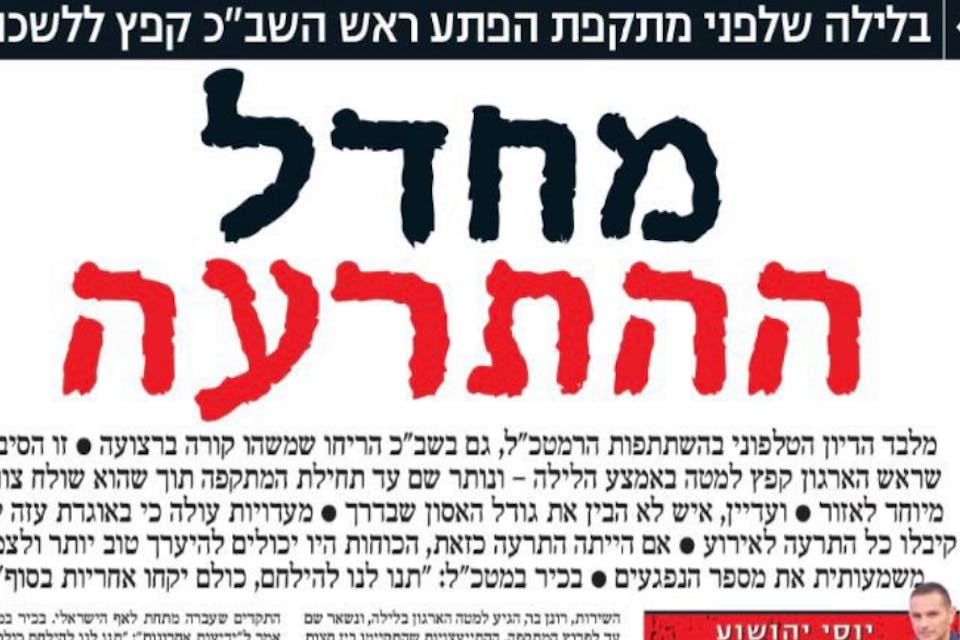
October 19, 2023
Can the Hebrew Word for Catastrophic Blunder Be Translated?
By PhilologosA meḥdal occurred in 1973. It has now, in an eerily similar way, occurred again. What exactly does it mean in English?
Always be careful what you ask for!
A few weeks before last Yom Kippur, Jonathan Silver, Mosaic’s editor, turned to me with a query. He was preparing for publication Michael Doran’s essay “The Hidden Calculation Behind the Yom Kippur War,” which appeared in Mosaic earlier this month, and he wanted to know how I would translate the Hebrew word meḥdal. In his essay, Doran had written:
Israelis have at their fingertips all the necessary facts [about the 1973 war] to tell a compelling story of triumph over tragedy, much like the one Americans tell themselves about World War II. A sneak attack by the enemy caught the lion sleeping. He made some early missteps, but once stirred from his slumber, he ripped his enemies to shreds. The [Golda] Meir government tried to market such a tale when the war ended, but the public rejected it out of hand. Israel’s collective memory immediately conceived of the war as neither a victory nor a defeat. . . . The word it chose was meḥdal, which technically means an act of omission or neglect that leads to great harm. Israelis remember the Yom Kippur War not just as a meḥdal, but as “the meḥdal”—the meḥdal par excellence.